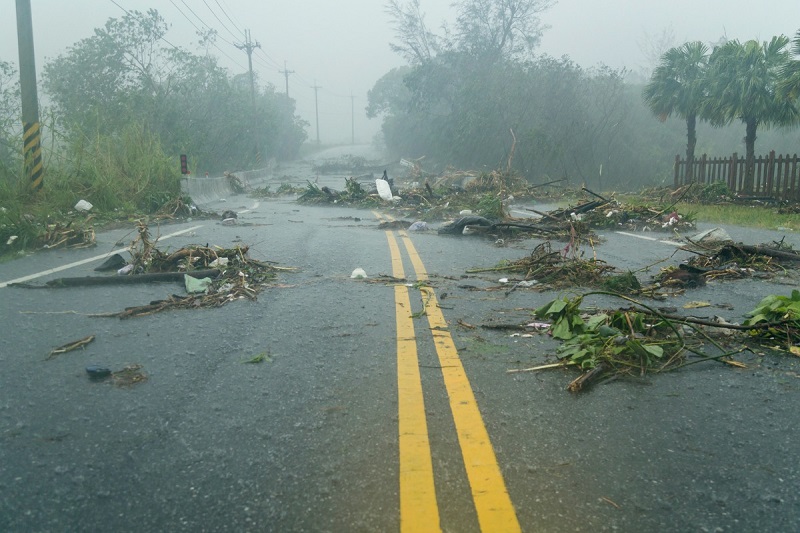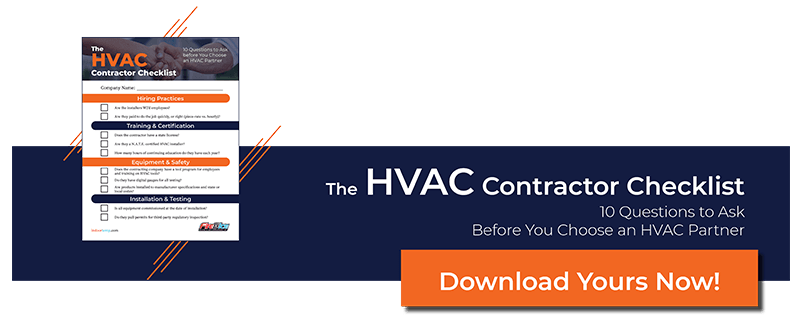This entry was posted on September 18, 2018.
Disaster can strike anywhere – and whether it’s a hurricane or tornado, an earthquake or a wildfire, it’s important that you know what precautions to take before returning home after you’ve evacuated.
You should never enter your home without getting the green light from local officials first. Sometimes it’s not safe yet, even when it appears to be, so wait for an “all clear” before you try venturing back into your neighborhood.
What to Check When You Return Home
Once officials say it’s safe to return to your home, you still have to be careful. When you arrive, make sure there are no immediate threats to your safety, such as:
• Cracks in your home’s foundation or roof that could cause the house to collapse
• Electrical issues, like downed power lines or shorts within your home
• Gas leaks that could signal a break in the gas line
• Water and sewage issues that can cause serious illness or death
• Air quality problems, like mold or carbon monoxide
Expert advice: Don’t bring your kids or pets when you return to inspect your home. Make sure it’s safe, and if possible, cleaned up and repaired before you bring your family with you.
Cracks in the Foundation or Roof
The first thing you should look at when returning home is your roof. Check for signs of damage from the front and back of the house before entering. If you notice any sagging or holes in the roof, be extremely cautious as it may not be stable.
Look for cracks in what you can see of the foundation, and peek inside the windows to see if there’s standing water or if ceilings are sagging – these are signs that the home’s structure is unstable and it could be dangerous for you to go inside.
If you believe it looks safe from the outside, you can head inside. (Check out this checklist to uncover storm damage before it’s too late for safety tips on inspecting your home.)
Who to Call: Contact a professional repairman, roofing specialist, contractor, or inspector to take a closer look at the damage.

Electrical Issues
Officials will warn you if there are downed power lines in your neighborhood, but in the absence of a warning, you still need to check things around your home.
You should never touch fallen electrical wires, and if there’s any standing water in your home, turn off the electrical power immediately as long as you don’t have to stand in water to do it.
Who to Call: In case of electrical issues, immediately call your local electrician for assistance.
Gas Leaks
If you smell natural gas or propane, don’t go in – even if you think it’s just that the pilot light in your stove is out or that it’s coming from elsewhere. Even a small spark, like one from your hot water heater or an electrical short, can cause an explosion.
Even if you don’t notice a smell, but you notice a hissing sound of gas escaping or see other signs of a leak: IMMEDIATELY EVACUATE the area and seek assistance.
Who to Call: Immediately contact your designated energy company, 24-hour emergency number at 1-800-400-4271, or call your local emergency response number.
Water and Sewage Problems
Check for leaks around your home immediately. Watch for soggy floors, walls and ceilings – if you see any, the home’s integrity could be compromised, and you’ll need to leave right away. (It’s common for floors, walls and ceilings to get wet after a disaster, so moisture isn’t necessarily a sign that the home is about to collapse.)
If you discover puddles or floodwater, never let it touch your skin – even if you’re outdoors and you believe the water is coming from a nearby river or stream. There are three main types of wastewater, which includes water from flooding, but you can’t always tell what you’re dealing with by looking at it:
- Clean water – Clean water isn’t necessarily clean, but it comes from a clean source like a leaky faucet or broken pipe that carries city water to your home.
- Gray water – Gray water is definitely contaminated. It comes from sources like overflowing rivers and streams, washing machine and dishwasher overflows, and other sources that contain bacteria.
- Black water – Black water can contain deadly bacteria, as well as grease, sewage and dangerous pathogens. It can come from backed up sewage drains and other sources that carry wastewater, and it can pollute rivers and streams. You should never attempt to handle black water yourself.
If water is flowing inside your home, shut it off at its source immediately – right after you turn off the electricity.
Who to Call: In case of water and sewage problems, contact your city utilities, waste management company, or your local plumber.

Air Quality Problems
Open the doors and windows as soon as you can – your home needs to air out before you can stay there for any length of time. The biggest concerns with air quality in a disaster-claimed home are:
- Mold – Assume your home has mold issues if it was flooded. Mold can be extremely dangerous to your health.
- Carbon monoxide – Carbon monoxide can kill you, so bring along a battery-powered carbon monoxide detector when you inspect your home.
If you are concerned about air quality, immediately evacuate your home and call for assistance.
Who to Call: For potential carbon monoxide, call your local HVAC specialist or fire department as soon as possible. Mold inspectors and specialists are available for any potential mold from leftover water damage.
 Damage caused by damp on a wall in modern house
Damage caused by damp on a wall in modern housePests and Animals
After a disaster, snakes, spiders and other wild animals can seek shelter in quiet, undisturbed places. Be particularly careful if your home sustained broken windows or pipes during the disaster, if walls are cracked, or if your roof sustained significant damage.
Who to Call: If you notice any wild animals, quickly contact your local animal control company. For smaller animals such as rodents and insects, exterminators are available.
Safety Tips When Inspecting Your Home
When you inspect your home, follow these safety tips:
- Pay attention to strong odors or fumes that can signal dangerous chemical mixtures.
- Don’t connect a portable generator to your home’s electrical system.
- Remove wet items from your home as soon as possible to help prevent mold growth inside.
- Follow water advisories; if officials say you must boil water before using it, make sure it stays at a rolling boil for at least one minute. If possible, use bottled water for drinking and brushing your teeth.
How to Rebuild
When it’s time to rebuild or repair your home, file an insurance claim if you can. Some types of insurance (like flood insurance) aren’t mandatory everywhere – it’s a special policy that you must purchase in addition to your regular homeowners insurance policy. However, particular types of insurance may be suggested or required for particular areas. Flood insurance is recommended in areas like Miami where flooding and hurricanes occur more frequently.
You’ll have to read through your entire policy to see what’s covered and what you’re responsible for doing before you file a claim.
How to File a Home Insurance Claim
Follow these steps to file a home insurance claim with your provider:
- Call your insurance company as soon as possible after a disaster.
- Fill out claim forms immediately to avoid delays.
- Ask your insurer to send out an adjuster to inspect the damage.
- Prepare for the adjuster’s visit by listing everything that’s damaged in your home. Don’t throw away damaged items until after the adjuster sees them.
- Keep your receipts for emergency repairs. The same is true if you’re displaced – hold on to hotel receipts so you can prove how much the disaster has cost you.

Cleanup Tips
When you’re cleaning up after a disaster, you may find it necessary to hire professional help – especially if you’re dealing with mold, soot and smoke damage, or sewage. If you don’t need professional help, follow these tips:
- Wear safety gear, like rubber gloves, goggles or breathing masks to protect yourself.
- Work in teams when you’re moving heavy items like sofas and beds.
- Throw away food that’s been exposed to floodwater or mud, even if it was sealed in a can or container.
- Rest when you need to – post-disaster cleanup can be a big, stressful job.
- Air out your home by opening doors and windows, and use fans to blow air out of your home.
- Throw away things you can’t clean or dry easily, like cosmetics, mattresses, paper products and heavy rugs.
- Clean all surfaces with hot water and dish detergent or bleach.
- Get rid of standing water as soon as you can to reduce the risk of illness or disease (and to minimize places for mosquitoes to thrive).
- Don’t handle hazardous materials. Call the fire department to inspect and remove them.
Like this article? You can find this article along with other high quality content on https://www.redfin.com/ a leading publisher for all things related to home buying and selling.
Whether you require installation, repair, or maintenance, our technicians will assist you with top-quality service at any time of the day or night. Take comfort in knowing your indoor air quality is the best it can be with MOE heating & cooling services Ontario's solution for heating, air conditioning, and ventilation that’s cooler than the rest.
Contact us to schedule a visit. Our qualified team of technicians, are always ready to help you and guide you for heating and cooling issues. Weather you want to replace an old furnace or install a brand new air conditioner, we are here to help you. Our main office is at Kitchener but we can service most of Ontario's cities
Source link




Add Comment